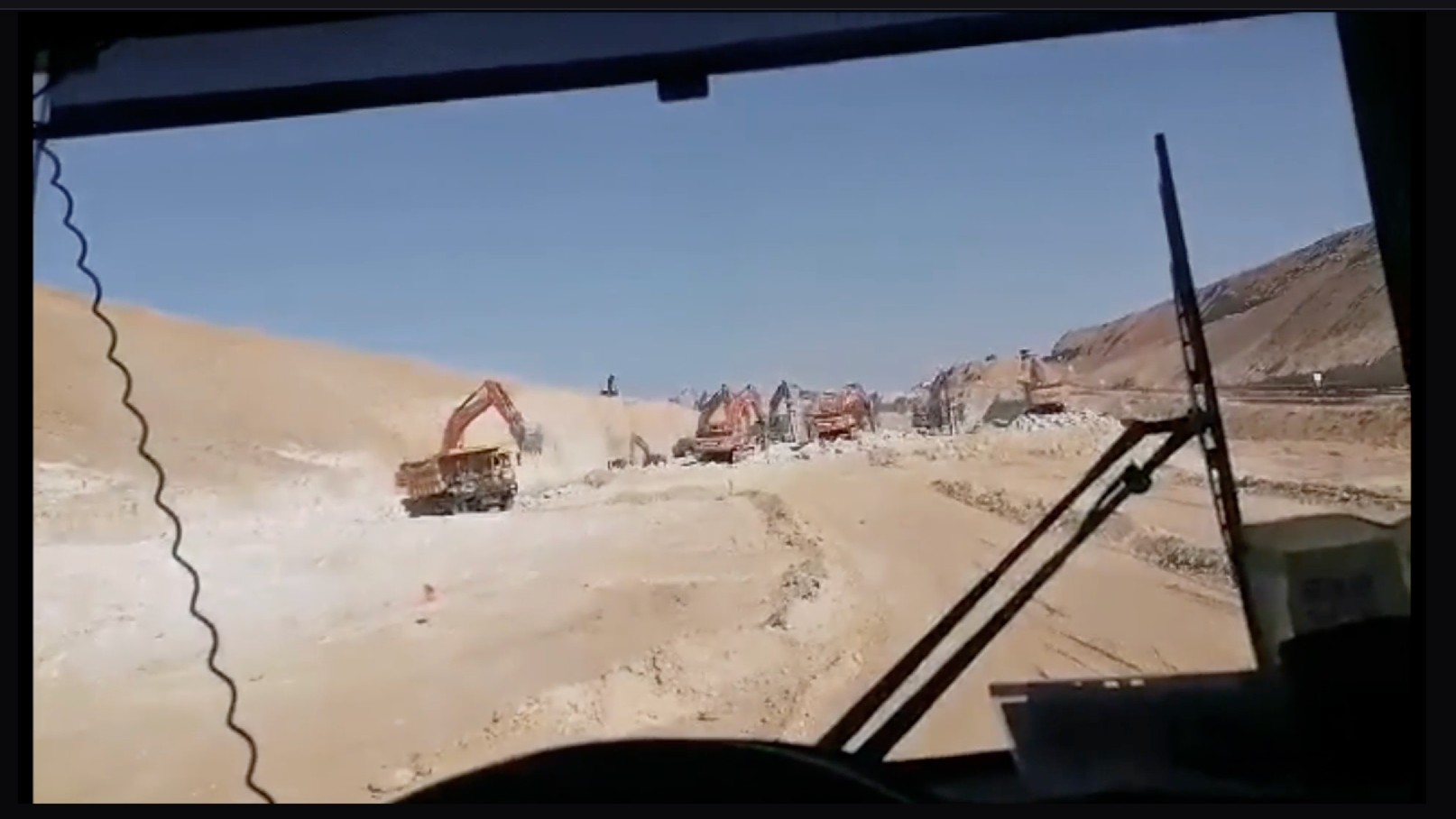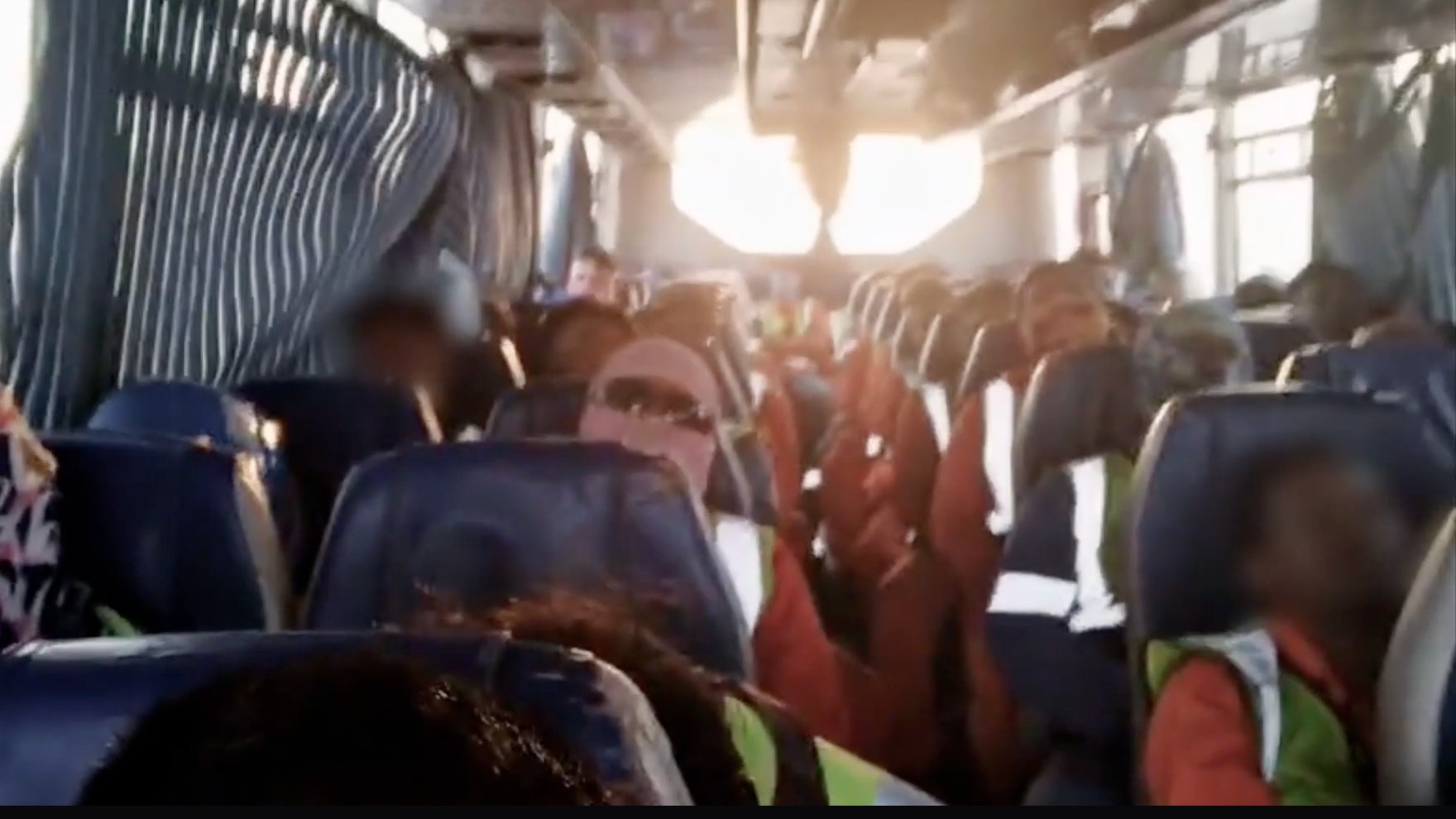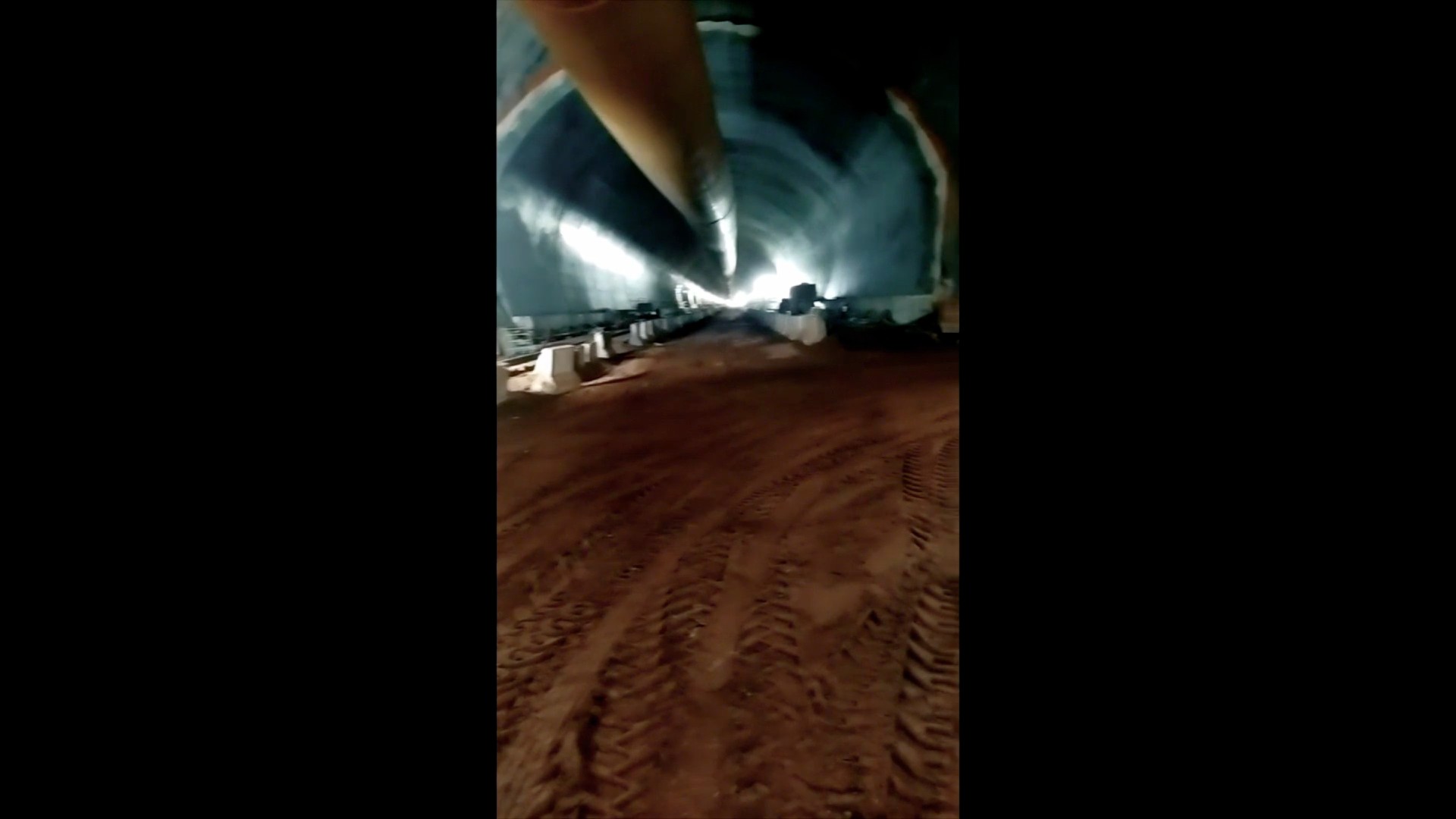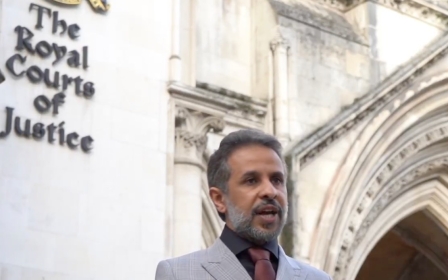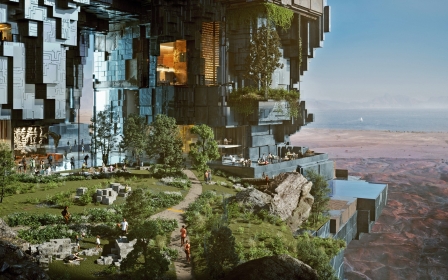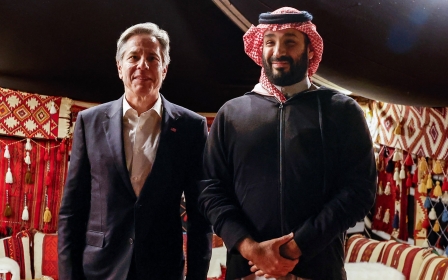Saudi Arabia: Neom workers speak of '16-hour work days' in ITV undercover film

Labourers are forced to work gruelling hours far beyond legal limits to construct the flagship project of Saudi Crown Prince Mohammed Bin Salman’s Neom megacity, according to a new ITV documentary.
One worker said that he regularly works 16-hour shifts, 14 days straight to build "The Line", the 170km straight-line city being constructed in northwestern Saudi Arabia.
According to “Kingdom Uncovered: Inside Saudi Arabia”, set to air this Sunday at 10:15pm, workers should only work 60 hours maximum, including overtime, each week under Saudi law.
But on top of the long shifts, workers told an undercover reporter that they must take an unpaid, three-hour bus commute to get to the desert site and back which leaves them with around four hours to sleep.
“We’re made to work extremely hard. There is little time to rest. We get tired. We suffer from anxiety day and night,” one worker said.
New MEE newsletter: Jerusalem Dispatch
Sign up to get the latest insights and analysis on Israel-Palestine, alongside Turkey Unpacked and other MEE newsletters
“Saudi doesn’t care much for citizens from other countries. We are treated like beggars.”
Undercover footage shot by the workers for the documentary offers some of the first unfiltered glimpses inside the ambitious project that is part of the kingdom’s Vision 2030 strategy to diversify its economy away from oil reliance.
Another worker, who filmed from inside the cage of a digger as he lifted piles of rocks and dirt, said employees “work non-stop”.
“We don’t get enough rest,” he said. “This lack of sleep has caused many accidents. There have been many. Just last month, there were four or five cases.”
Nicholas McGeehan, director at the UK-based human rights organisation FairSquare, said the working hours of the labourers at The Line were "way beyond what the international minimum standards permit".
"The reality is that workers all over Saudi Arabia are subject to deeply abusive and dangerous exploitation. The abuses are systematically happening across the country," McGeehan said.
Migrant workers make up three quarters of Saudi Arabia's workforce and are critical for the Vision 2030 projects.
Based on data released in India, Bangladesh and Nepal, the film reports that 21,000 foreign workers from the three countries have died since Vision 2030 was launched eight years ago in 2016.
Neom told the filmmakers that it was assessing the claims made in the documentary and would take appropriate action where it was required.
"We require all contractors and subcontractors to comply with Neom’s Code of Conduct, based on the laws of Saudi Arabia and the policies of the International Labour Organization, and they are subject to frequent inspections of their workers’ living and working conditions,'" the organisation said.
The Saudi government did not respond to requests for comment from the filmmakers.
Along with The Line, Neom is set to feature an eight-sided city that floats on water, a ski resort with a folded vertical village and a luxury island resort on the Red Sea, which is often promoted with glossy, cinematic imagery.
However, the project has also been dogged by human rights concerns, including accusations that the Saudi government forcibly displaced members of the Howeitat tribe, who have lived in the Tabuk area for centuries, to make way for Neom.
A former Saudi intelligence officer told Middle East Eye that Saudi security officers were ordered to use lethal force to kill residents who resisted eviction in early 2020.
Alqst, the UK-based human rights organisation, has reported that at least 47 members of the tribe have since been arrested or detained for refusing to leave, including five sentenced to death.
Two executives have spoken out publicly over the treatment of the Howeitat and left the project over their concerns.
There also appear to be issues fulfilling the project’s grand design.
In April, Bloomberg reported that The Line, which had been due to house 1.5 million people by 2030, had been scaled back and is now expected to have fewer than 300,000 residents and only 2.4km out of 170km completed by then.
Middle East Eye delivers independent and unrivalled coverage and analysis of the Middle East, North Africa and beyond. To learn more about republishing this content and the associated fees, please fill out this form. More about MEE can be found here.


